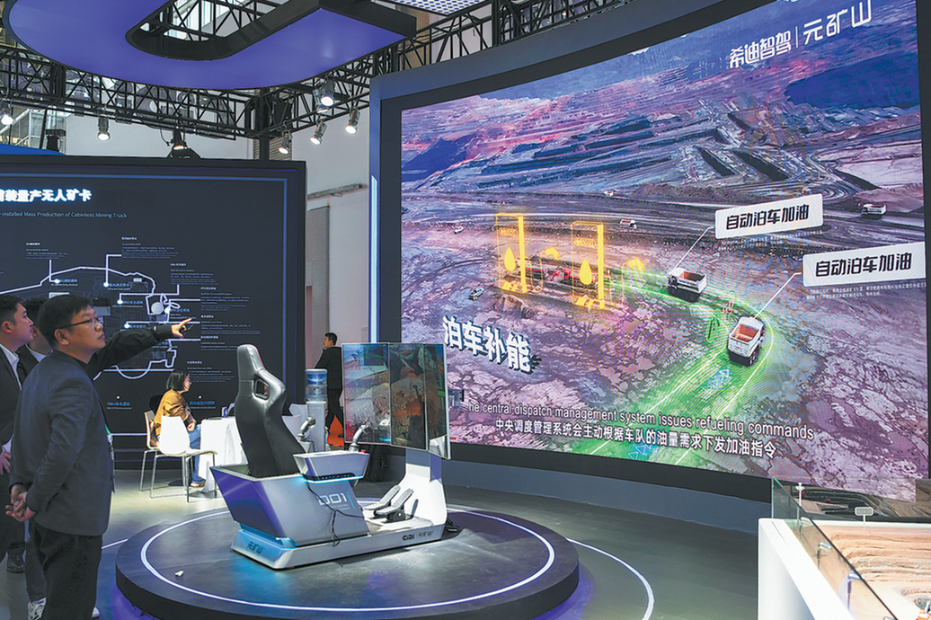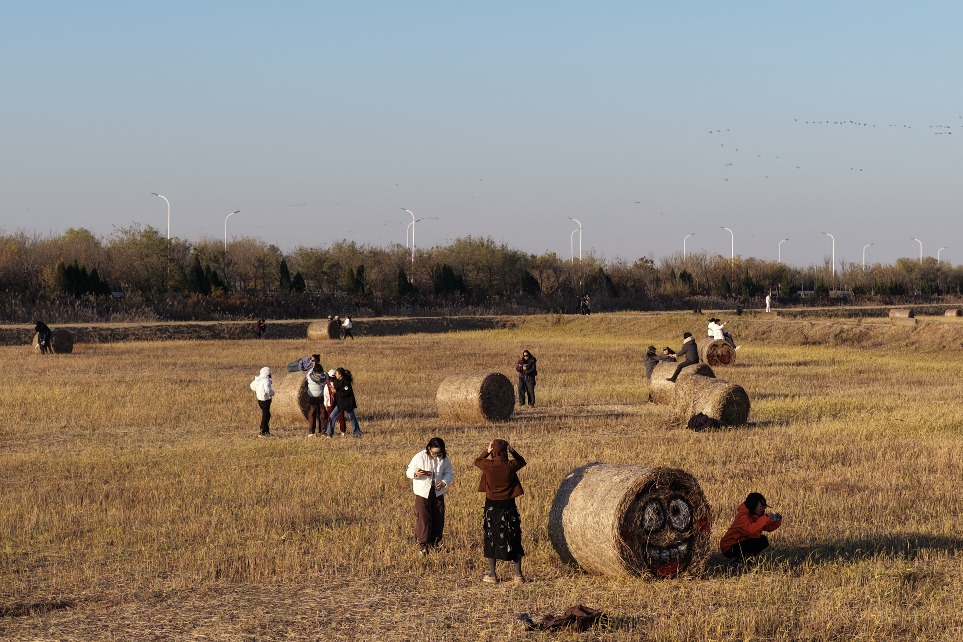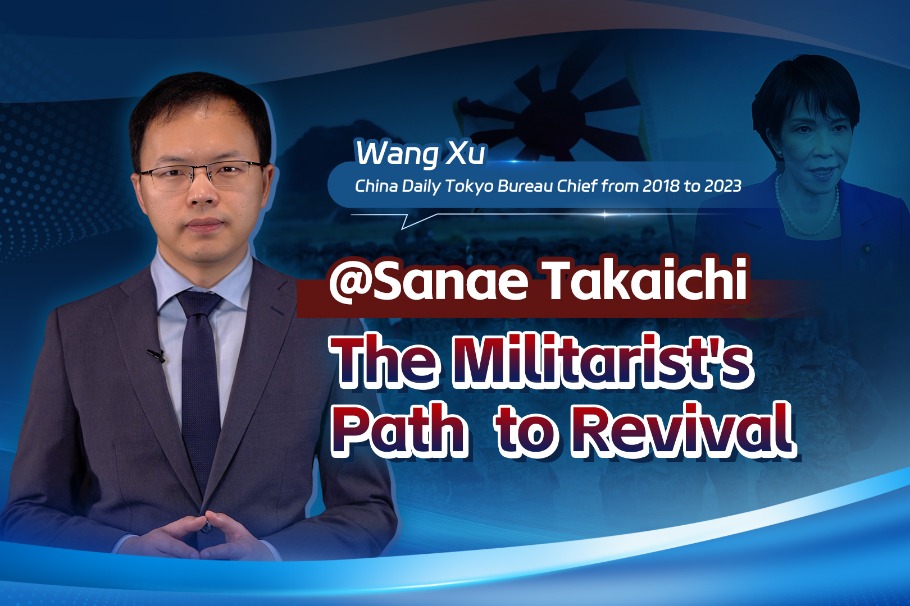Four pillars sustain iron-clad friendship
By Aleksandar Mitic | China Daily Global | Updated: 2024-06-07 09:19

On the 25th anniversary of the NATO bombing the Chinese embassy in Belgrade, in which three Chinese journalists were killed, President Xi Jinping visited Serbia as part of his three-country visit to Europe in early May. He said that "the China-Serbia friendship, forged with the blood of our compatriots, will stay in the shared memory of the Chinese and Serbian peoples".
Some US scholars, such as Peter Gries, feel the impact of the embassy bombing on Chinese foreign policy was such that one could talk about a "post-Belgrade China". It is believed that the attack made Chinese officials change their view regarding the threat of US unilateral actions and "coalitions of the willing", including in the Asia-Pacific. As a war correspondent from the Serbian province of Kosovo, the epicenter of the attacks, I witnessed 192 civilian deaths in NATO attacks. No one from NATO has ever been investigated for those deaths, let alone put on trial. It was the height of the "US unipolar world".
Back in the 1930s, a young man named Vladimir moved to the city of Sarajevo, where he was instrumental in organizing the resistance movement. He would become known as "Valter", and was killed in the final days of the fight to liberate the city in 1945. Some 30 years later, Vladimir's story was recreated in the film Valter defends Sarajevo. The film became one of the most popular foreign war movies in Chinese history, for most Chinese audiences it was their first insight into the history of the Balkan troubles with powerful occupying empires, as well as a powerful cultural bridge between Beijing and the Yugoslav/Serbian capital of Belgrade.
Indeed, the memory culture related to the resistance and suffering during World War II in the 1940s and the NATO aggression in the 1990s is one of the four cornerstones of China-Serbia "iron-clad friendship".
The second cornerstone is the political partnership, reflected in the mutual respect for territorial integrity, and the specific position of Serbia in Europe, as a military neutral country that refuses to join NATO and to bow to Western pressure to impose sanctions against Russia and China. Beijing followed closely the development of events in Serbia following the NATO aggression. In the local elections in Taipei in 2000, it saw similarities in attempts to create conditions for the "unilateral declarations of independence" in the cases of Taiwan and the Serbian province of Kosovo, where a separatist Albanian majority was supported by the West.
In 2008, the US and the European Union masterminded "Kosovo's unilateral declaration of independence", which was recognized by the majority of Western countries, but not by China, Russia, the remaining countries of BRICS and most of the Global South. Ever since, the West has tried to legalize the "unilateral independence of Kosovo" and thus legitimize the 1999 NATO aggression which paved the way for it. Under immense pressure from the West, Serbia has found in China an uncompromising partner, and has vowed the same regarding every issue related to China's territorial integrity.
The third cornerstone is the China-Serbia economic cooperation, which has dramatically improved under the framework of the Belt and Road Initiative, since President Xi's first visit to Serbia in 2016. China was the number one investor in Serbia in 2023, and the three top Serbian exporters are Chinese companies. These tremendous results are not surprising for anyone who has visited China recently.
I had such a chance during an outstanding seminar organized by the Center for International Knowledge on Development in Beijing and Xi'an. The visit to Beijing E-Town's High-Level Autonomous Driving Demonstration Zone, the world's first, makes it clear that attempts to curb China's technological advances are doomed to failure. The impressive results of the German company Mercedes-Benz in E-Town expose in practice the illusion of "de-risking "strategies, aimed at reducing economic interconnectedness with China, as proposed by President of the European Commission Ursula von der Leyen. European countries need China, as testified by the visit to Beijing of German Chancellor Olaf Scholz, or the frequent meetings between President Xi and French President Emmanuel Macron. Just as they need the China-Europe Express Railway, whose starting point we visited in Xi'an, and whose annual transportation through the Russian Federation into Germany and 24 other European countries has risen from 80 trains in 2013 to 17,000 in 2023. The security and convenience of this Belt and Road project became particularly apparent following maritime transportation disturbances through the Suez Canal following the outbreak of the latest conflict in Gaza.
Finally, the fourth cornerstone is the common vision of the global geopolitical transition toward multipolarity. This means a world order based on international law and the United Nations Charter, and not a "rules-based" system based on the Western interpretation of international agreements and resolutions, which has had destructive consequences for Serbian national interests from the end of the Cold War up to today.
Based on these four cornerstones, under the auspices of President Xi and his host, President Aleksandar Vucic, China and Serbia are elevating their relations from a comprehensive strategic partnership by working together to build a China-Serbia community with a shared future in the new era.
In the years and decades ahead, we will remember Xi's second visit to Belgrade as a milestone. We will talk about the "China-Serbia community" as a strategically insightful and fundamental vision of a return to international law and multilateralism, as opposed to the Cold War rhetoric of expansion of military alliances, as well as the launchpad for more people-to-people exchanges. The announcements of new direct flights to Shanghai and Guangzhou are a right step in that direction.
The author is a research fellow at the Center for the Belt and Road Studies of the Institute of International Politics and Economics, Belgrade, Serbia.
























